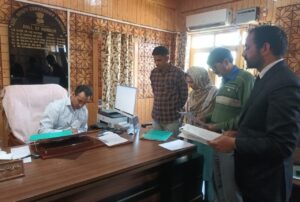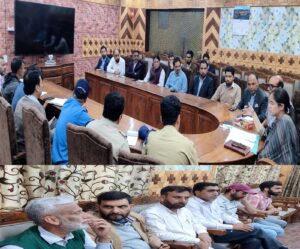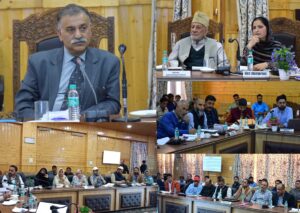CM Omar Abdullah addresses special session of J&K Legislative Assembly following Pahalgam terror attack
‘Not In My Name’: Every Kashmiri rejected terrorism out rightly: CM
‘No assembly or parliament can understand this grief better than ours’
JAMMU, APRIL 28: Chief Minister Omar Abdullah today delivered an emotional and powerful address, expressing profound grief, condemning terrorism and calling for unity and resilience in wake of killing of 26 civilians in Pahalgam terror attack.
The Chief Minister was speaking during a special session of the Jammu and Kashmir Legislative Assembly convened after the tragic Pahalgam terrorist attack that claimed 26 innocent lives.
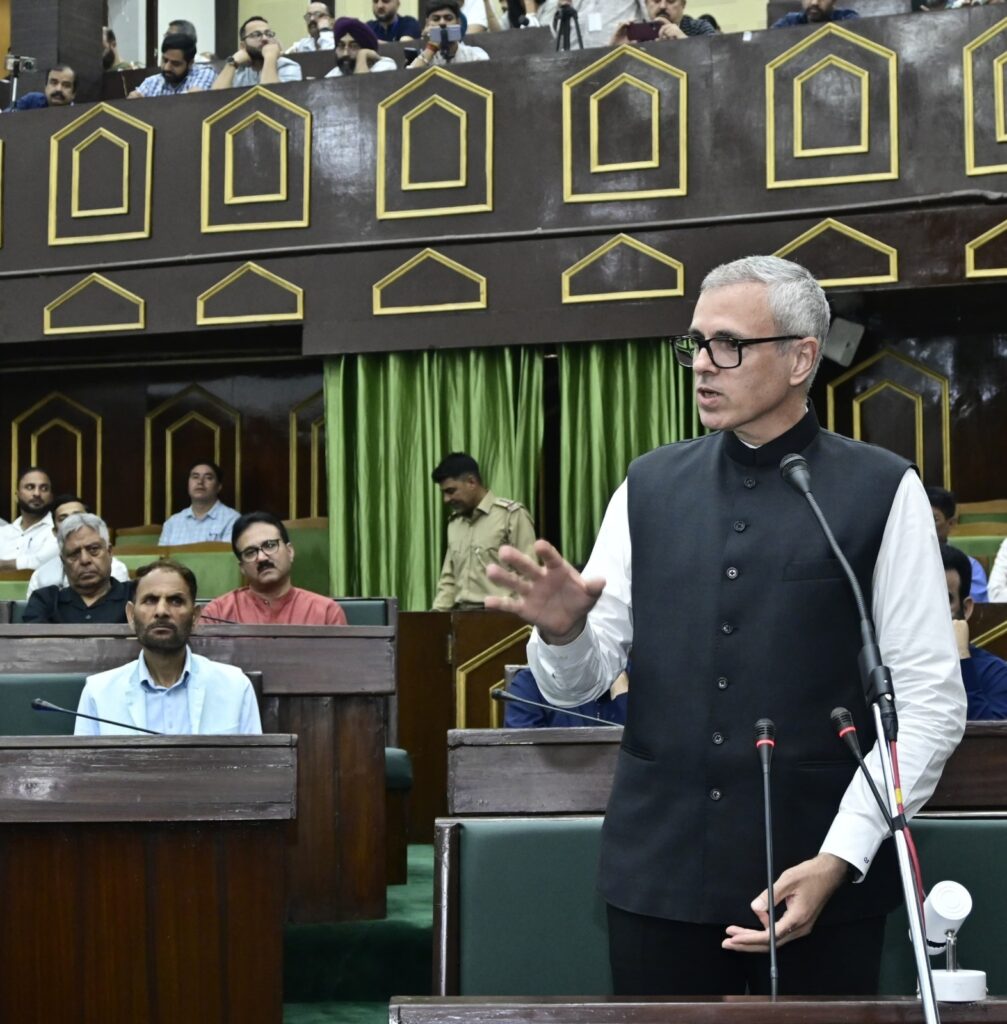
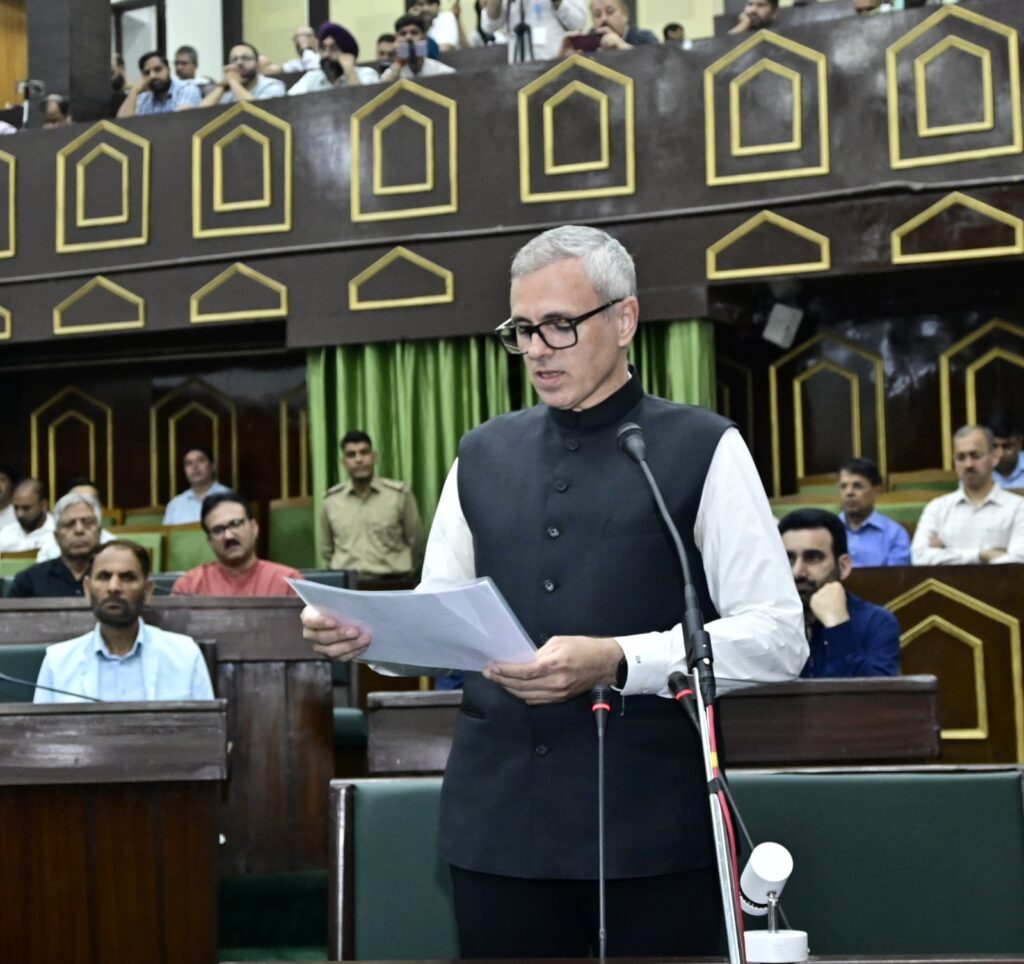
Beginning his speech, the Chief Minister reflected on the painful circumstances that brought the House together. “It is hard to believe that just a few days ago, we were engaged in vibrant debates in this very House — over the Budget and many other important matters. We had hoped that we would meet again in normal conditions. None of us could have imagined that we would be meeting in such tragic and painful circumstances ,” he said.
The Chief Minister expressed gratitude to the Lieutenant Governor for convening the special session and emphasized the significance of the Assembly to understand the gravity of this tragic loss of innocents. “No other Parliament or Assembly can understand the pain of these 26 innocent lives lost, as much as this House does,” he stated.
Reflecting on the personal losses among legislators themselves, the Chief Minister recalled the sacrifices of members like Shagun Parihar, Sakina Itoo and Sajad Lone, and the horrors of the October 1, 2001, Assembly attack. He asserted that perhaps no Assembly can understand this grief better than theirs.
On behalf of the House, the Chief Minister strongly condemned the terrorist attack and expressed solidarity with the victims’ families. “This was not just an attack on people from one state — it was an attack on the very soul of India,” he declared.
He highlighted that the victims hailed from across India, from Arunachal Pradesh to Gujarat, from Kerala to Jammu and Kashmir, symbolizing a national tragedy.
Omar Abdullah lamented that despite hopes that terrorism was a chapter of the past, the brutal attack marked the tragic return of terror involving death of so many civilians after 22 years. Remembering his own presence at the police control room to pay last respects, he spoke of the profound helplessness he felt facing the bereaved families. “What apology would ever suffice?” he asked.
The Chief Minister acknowledged that although security responsibilities no longer rested with the elected government, he, as Chief Minister and Minister of Tourism, bore responsibility for having invited the visitors and ensuring their safe return — a responsibility he felt he had failed to uphold.
Narrating the heart-wrenching words of a newly wed young woman who had lost her husband in the attack, the Chief Minister underscored the senselessness of the violence. “But who amongst us can ask for such violence? No one in this House or outside it, would ask for blood to be spilled ? No!” he stated emphatically.
Despite the deep wound inflicted by the attack, the Chief Minister identified a glimmer of hope: the spontaneous, widespread public condemnation of the attack across Jammu and Kashmir. From Kathua to Kupwara, ordinary citizens raised banners and placards reading “Not In My Name,” distancing themselves from terrorism without any political prompting.
“This attack was not done for us — it was done against us,” he stressed, adding that true and lasting peace would only be achieved when the people stand firmly with the forces of peace and governance.
He cited a significant moment of mourning at the Jamia Masjid in Srinagar, where a two-minute silence was observed after Friday prayers — an act that, he said, carried profound meaning for every Kashmiri.
The Chief Minister also narrated stirring examples of humanity shown by ordinary Kashmiris like a ponywala risking his life to save tourists, a humble fruit seller on Dal Lake offering free meals to stranded visitors despite meagre earnings and taxi drivers, hoteliers, and boatmen opening their hearts and homes to guests.
These acts, he said, represented the true spirit of Kashmiri hospitality, even in the darkest of times.
Acknowledging the support extended by various state governments to Kashmiri students and residents outside J&K in view of harassment to them in the aftermath of Pahalgam attack, the Chief Minister announced efforts to strengthen response mechanism for quick response during emergencies in future so that Government acts immediately to ensure safety and security of students and others caught up in difficult situations. However, he warned sternly against the spread of false and fake information through news, noting that while most information shared is true, even a small percentage of misinformation can cause significant harm. “We will not tolerate it,” he asserted firmly.
Reiterating that security responsibilities in Jammu and Kashmir are not under the elected government, Omar Abdullah made it clear that he would not use the tragedy for political advantage. “I have too much respect for the sanctity of these 26 lives to indulge in petty politics. I will not exploit their martyrdom to raise demands for statehood or any other political gain today,” he declared.
He assured the Assembly that discussions around governance, rights, and aspirations would take place at an appropriate time, but today was a day solely for grief, solidarity and resolve.
Concluding his address, the Chief Minister called upon all Members to pass a unanimous resolution condemning the barbaric attack and expressing solidarity with the bereaved families.
The House later unanimously passed a resolution condemning the inhuman terror attack on tourists at Pahalgam.
The names of 26 persons who lost their lives were read out and made part of the obituary reference made by the Speaker.


